Abstract
Three experiments examined adult humans' choices in situations with contrasting short-term and long-term consequences. Subjects were given repeated choices between two time-based schedules of points exchangeable for money: a fixed schedule and a progressive schedule that began at 0 s and increased by 5 s with each point delivered by that schedule. Under "reset" conditions, choosing the fixed schedule not only produced a point but it also reset the requirements of the progressive schedule to 0 s. In the first two experiments, reset conditions alternated with "no-reset" conditions, in which progressive-schedule requirements were independent of fixed-schedule choices. Experiment 1 entailed choices between a progressive-interval schedule and a fixed-interval schedule, the duration of which varied across conditions. Switching from the progressive- to the fixed-interval schedule was systematically related to fixed-interval size in 4 of 8 subjects, and in all subjects occurred consistently sooner in the progressive-schedule sequence under reset than under no-reset procedures. The latter result was replicated in a second experiment, in which choices between progressive- and fixed-interval schedules were compared with choices between progressive- and fixed-time schedules. In Experiment 3, switching patterns under reset conditions were unrelated to variations in intertrial interval. In none of the experiments did orderly choice patterns depend on verbal descriptions of the contingencies or on schedule-controlled response patterns in the presence of the chosen schedules. The overall pattern of results indicates control of choices by temporarily remote consequences, and is consistent with versions of optimality theory that address performance in situations of diminishing returns.
Full text
PDF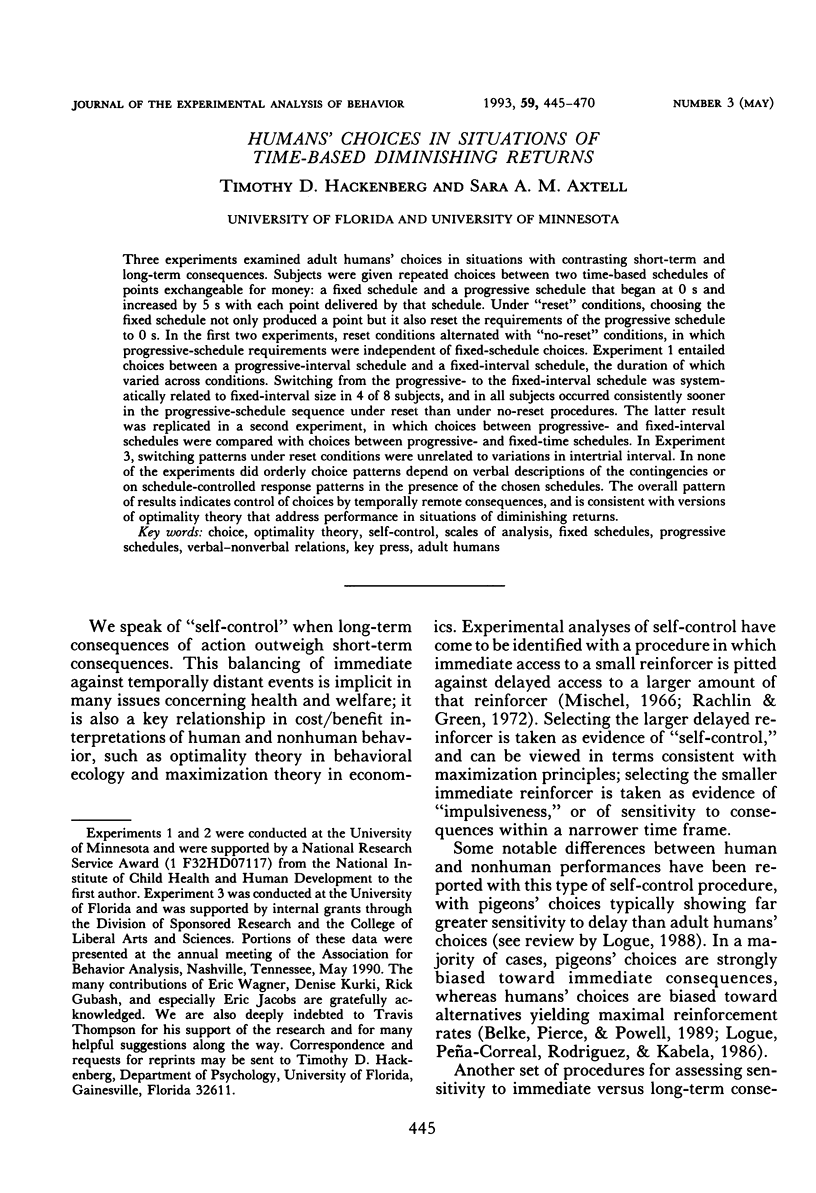
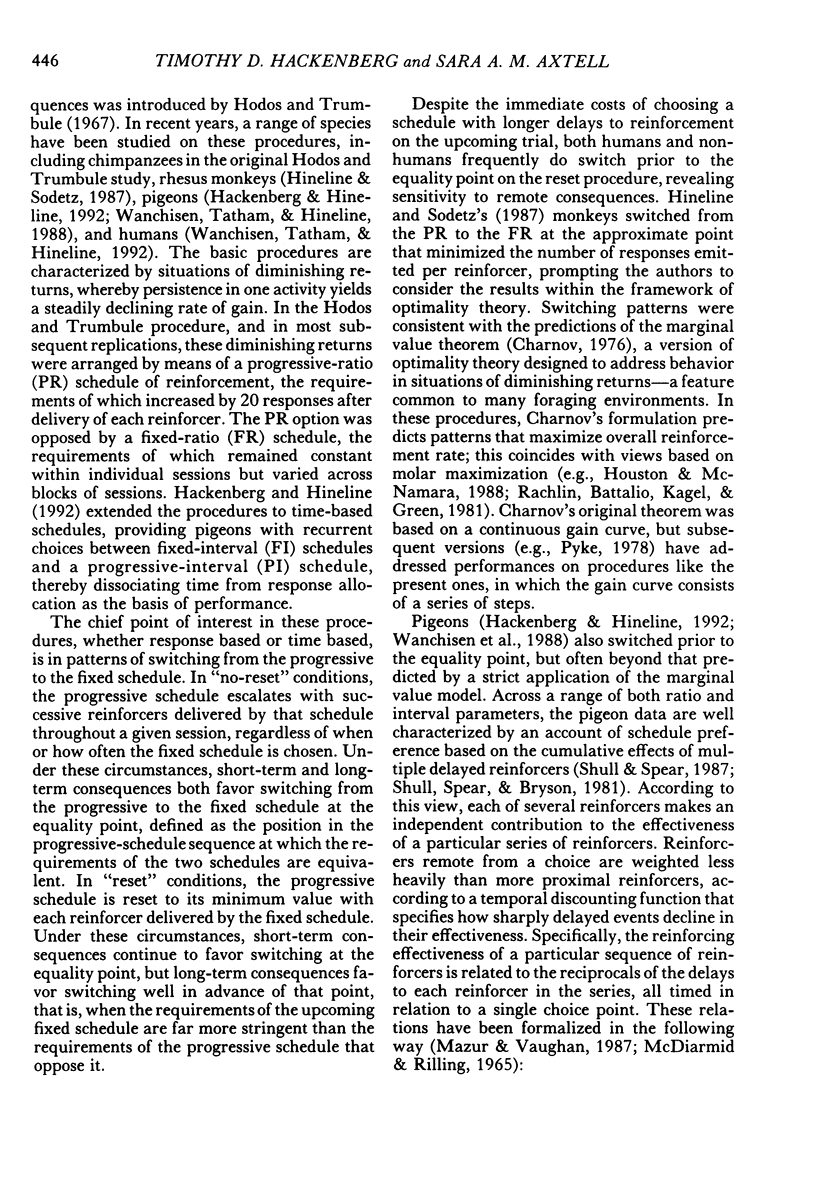
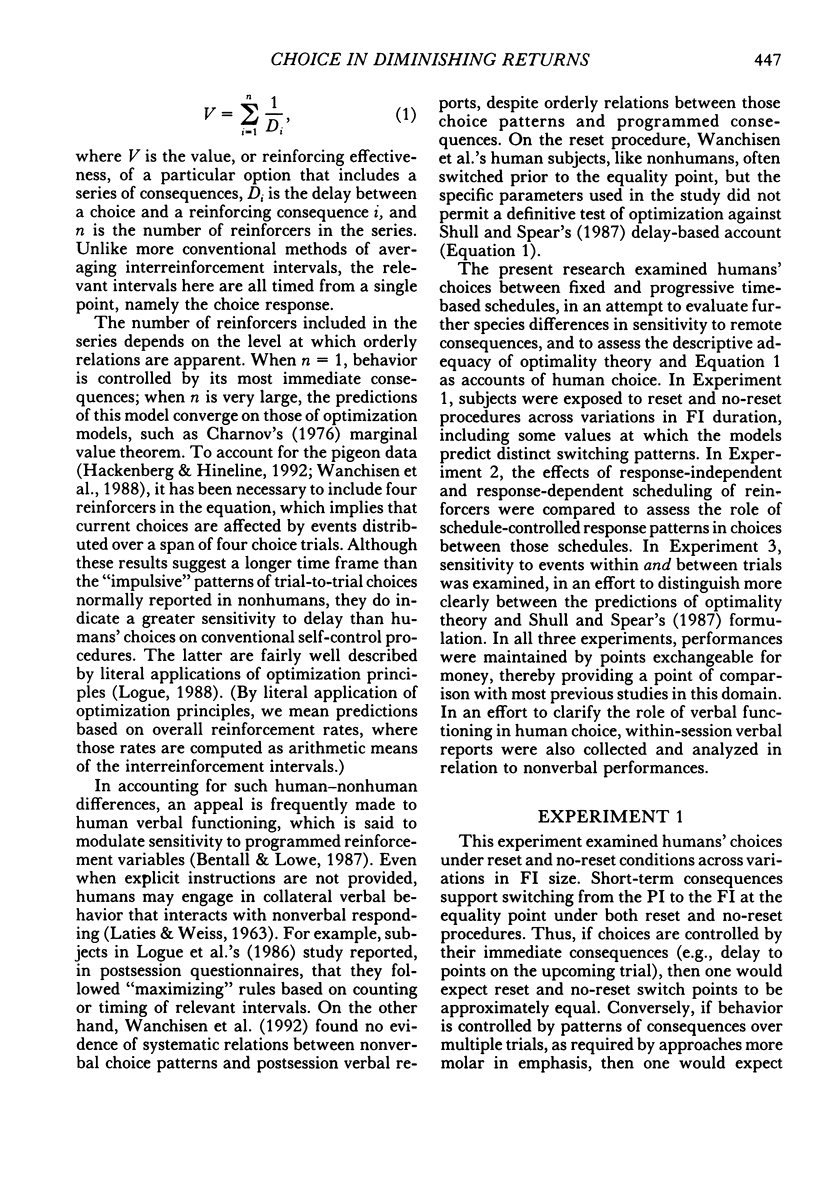
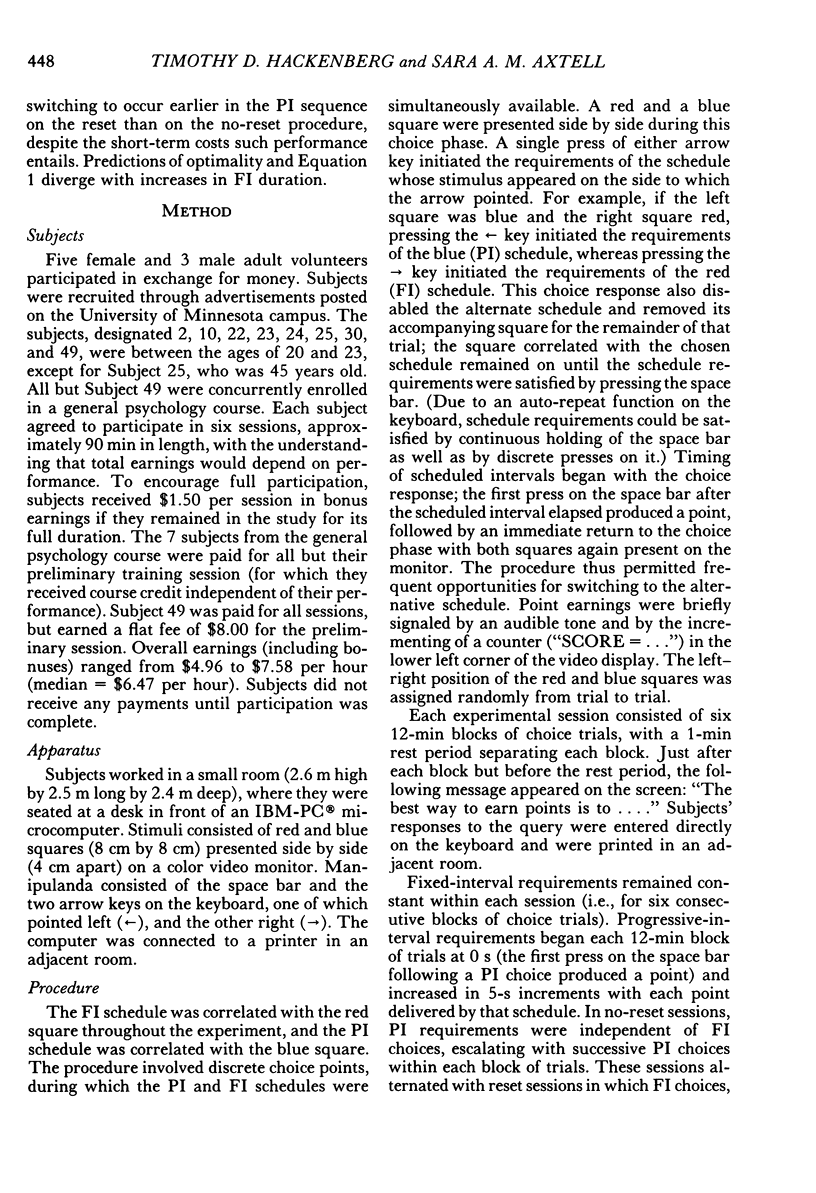
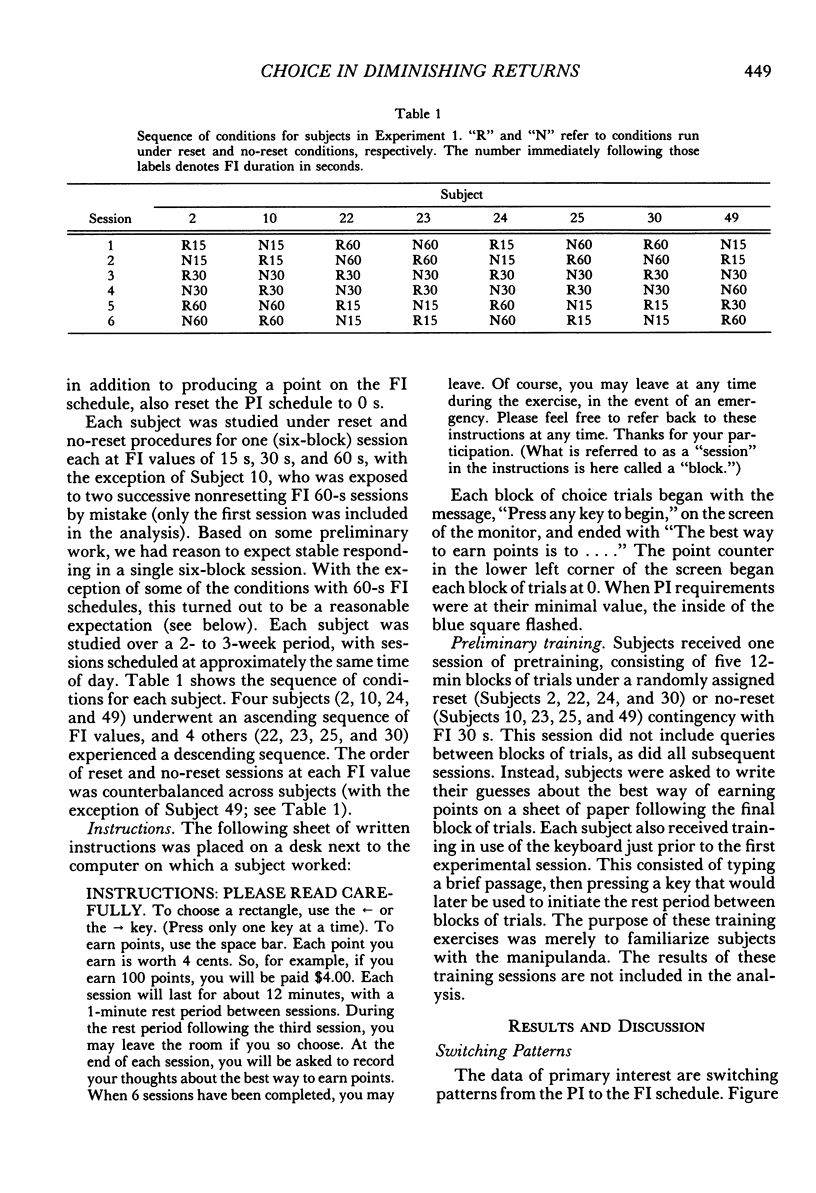
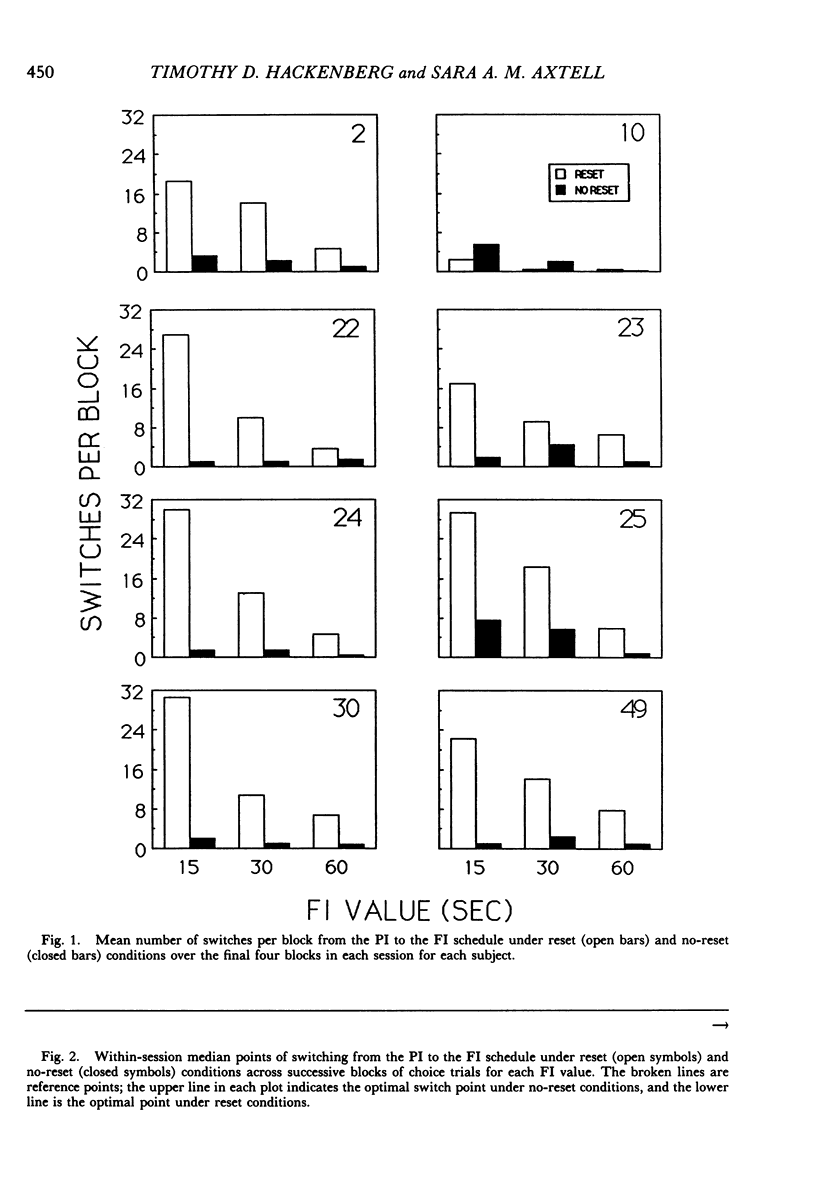
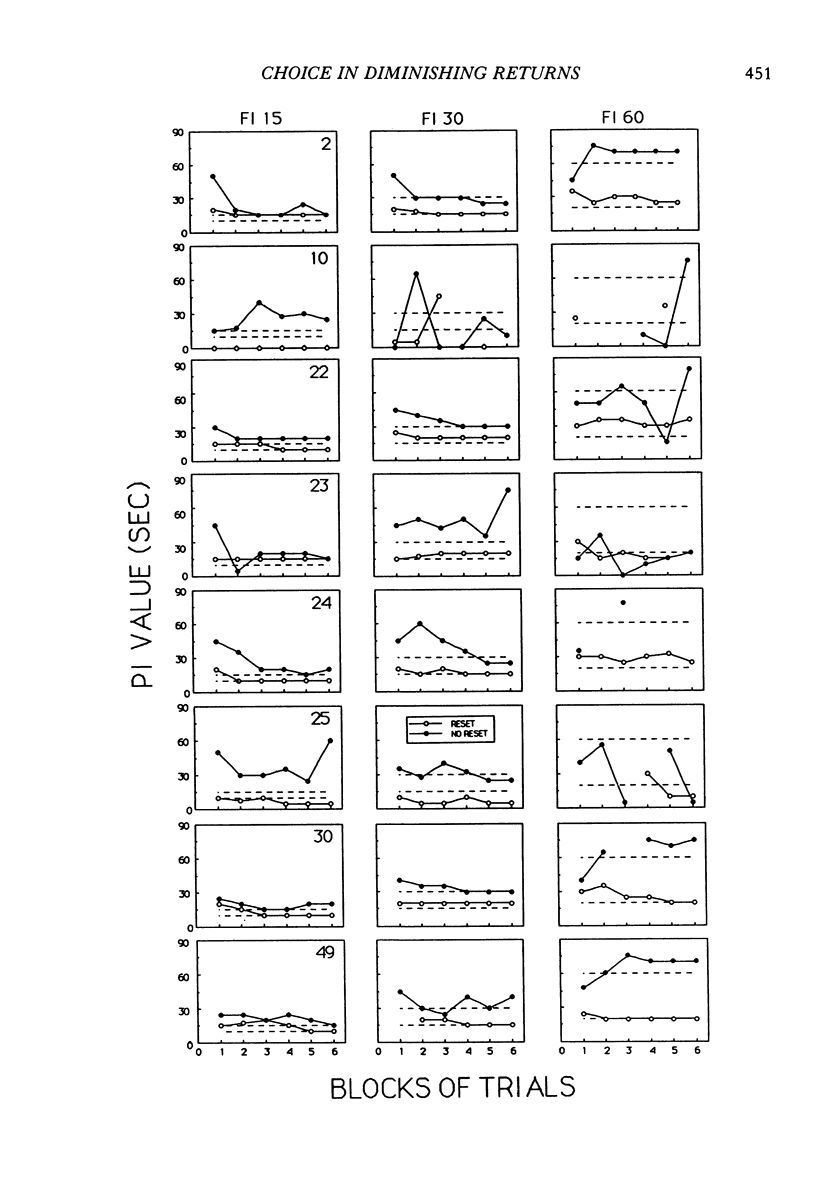
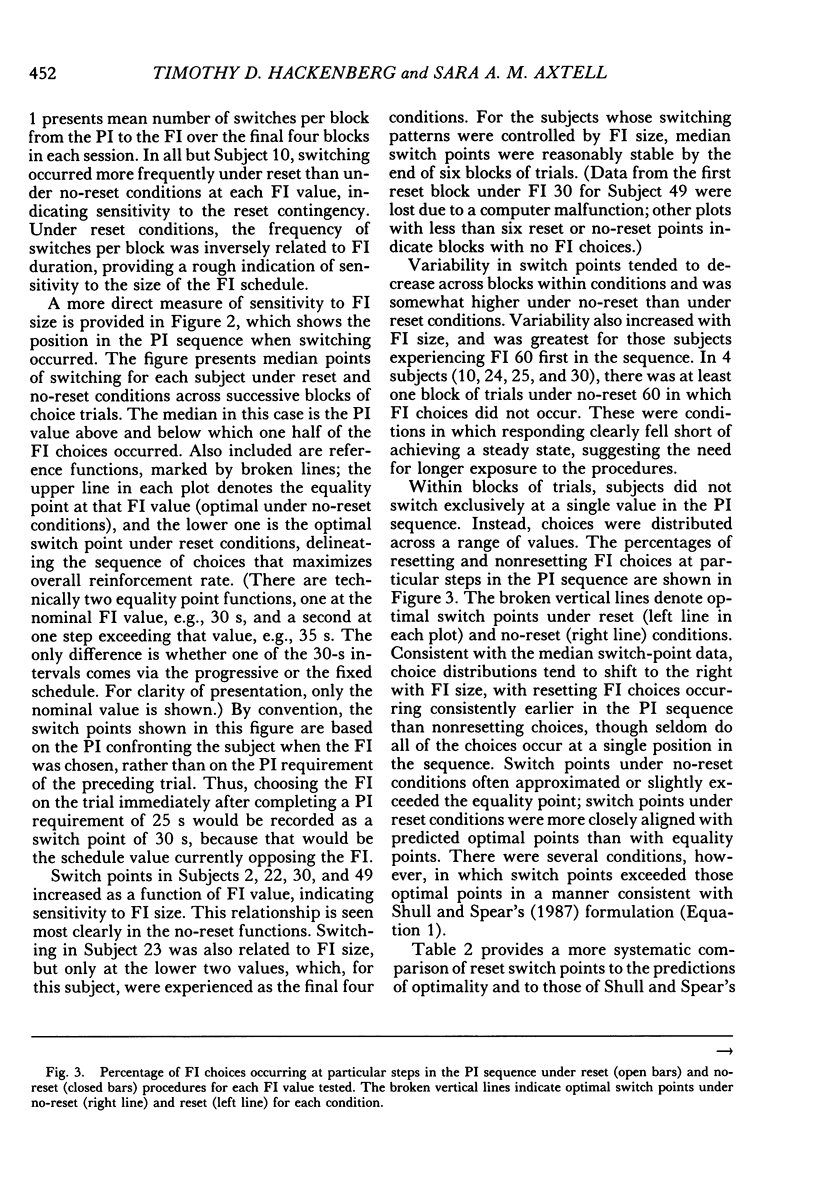
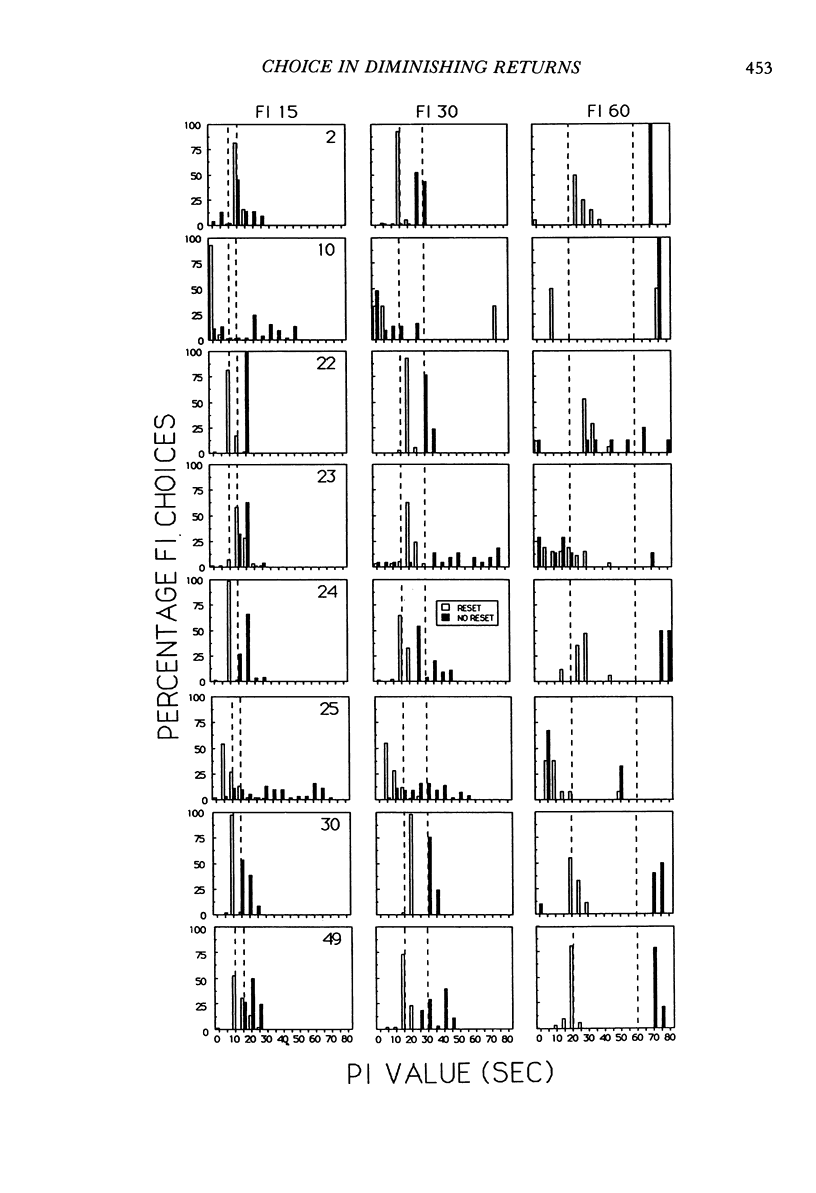
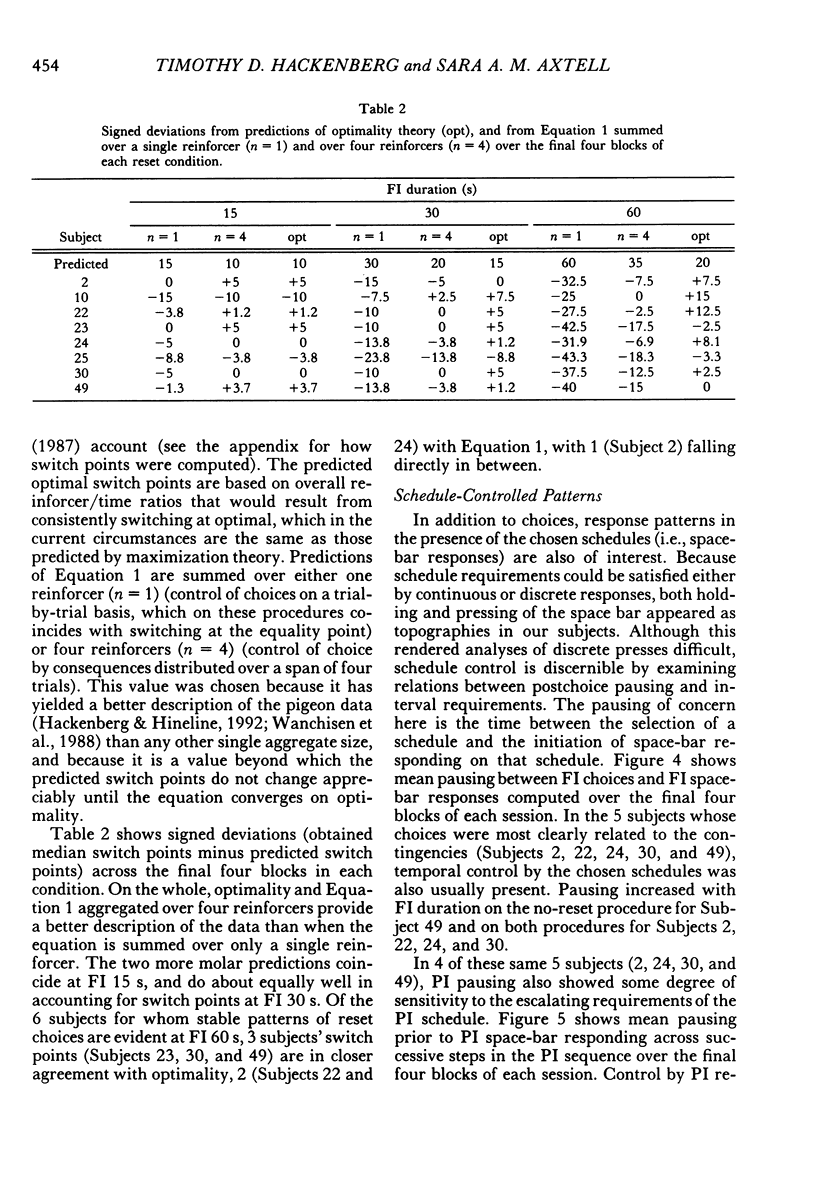
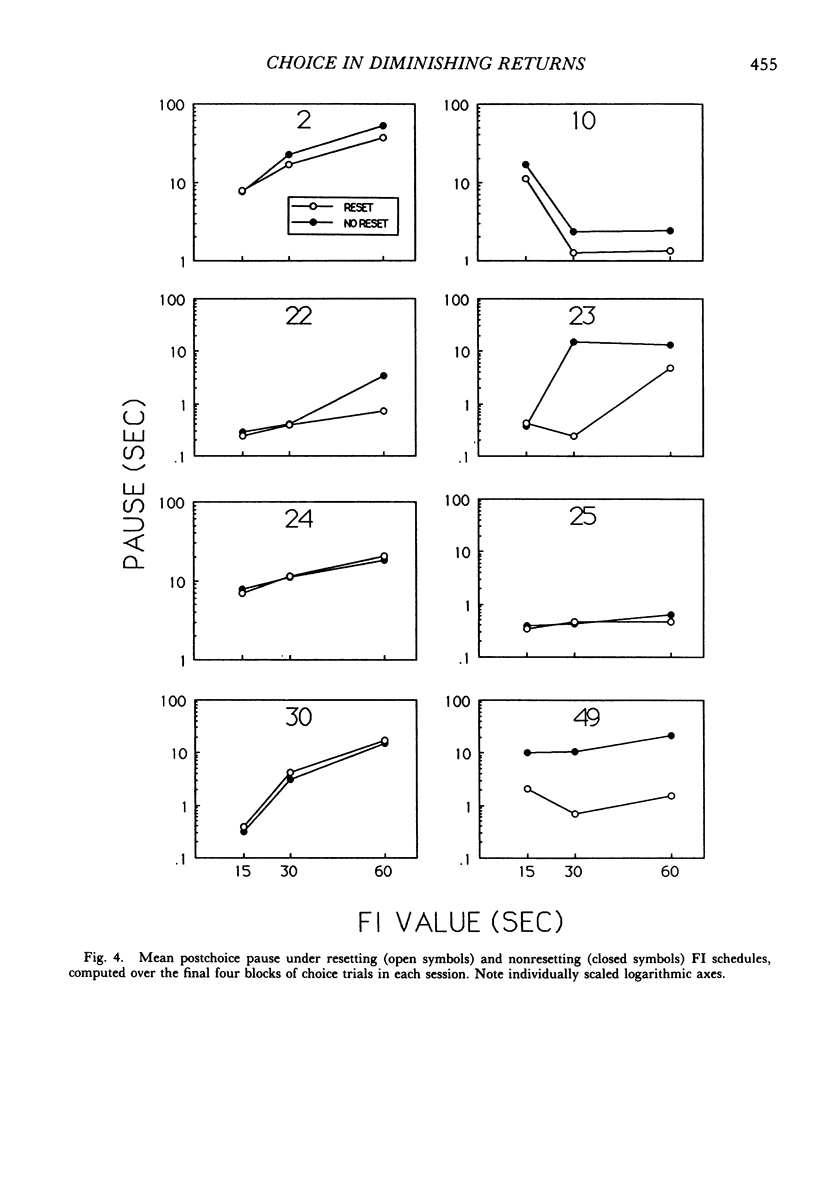
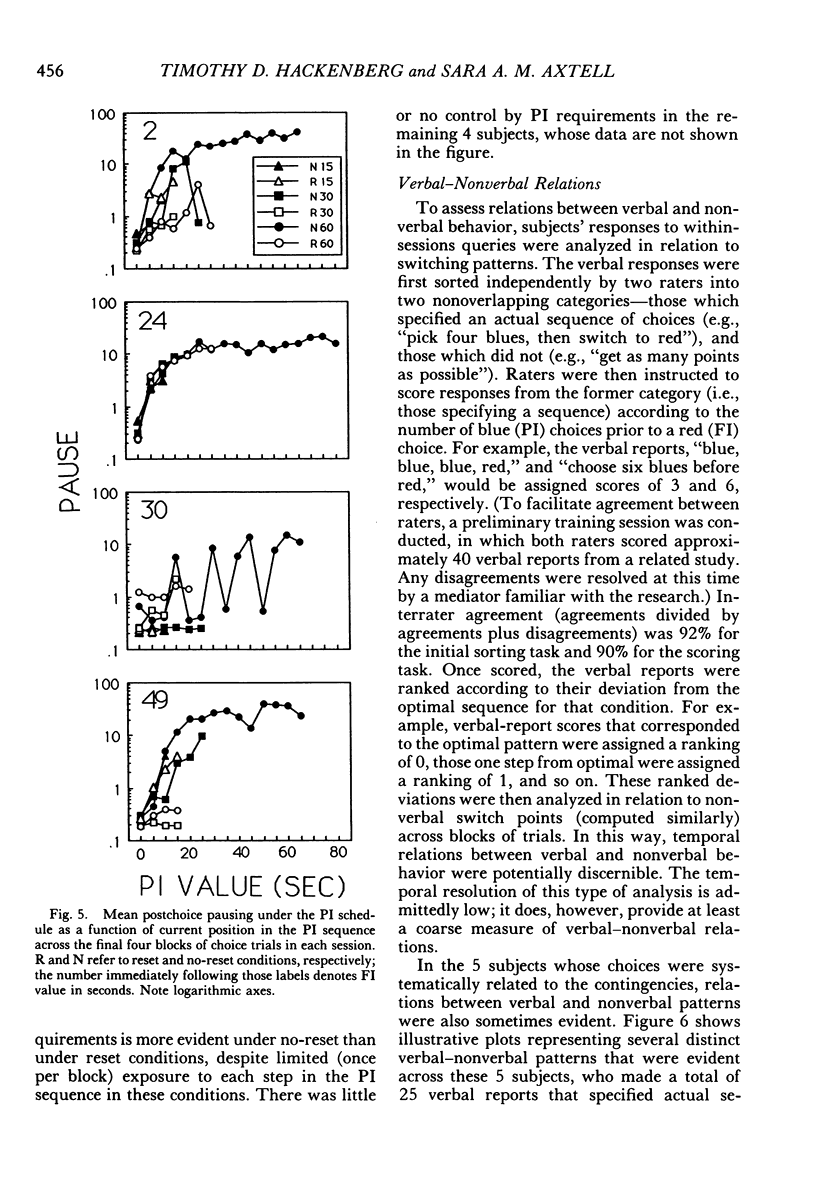
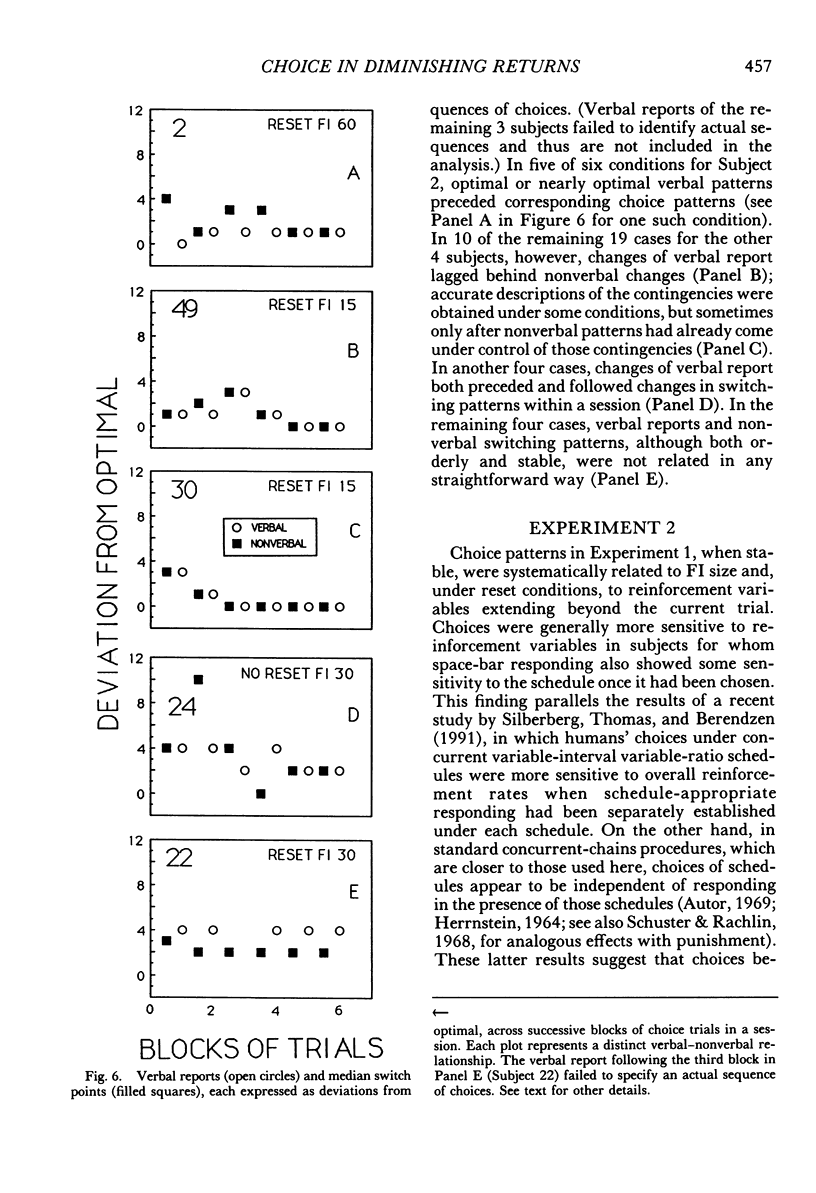
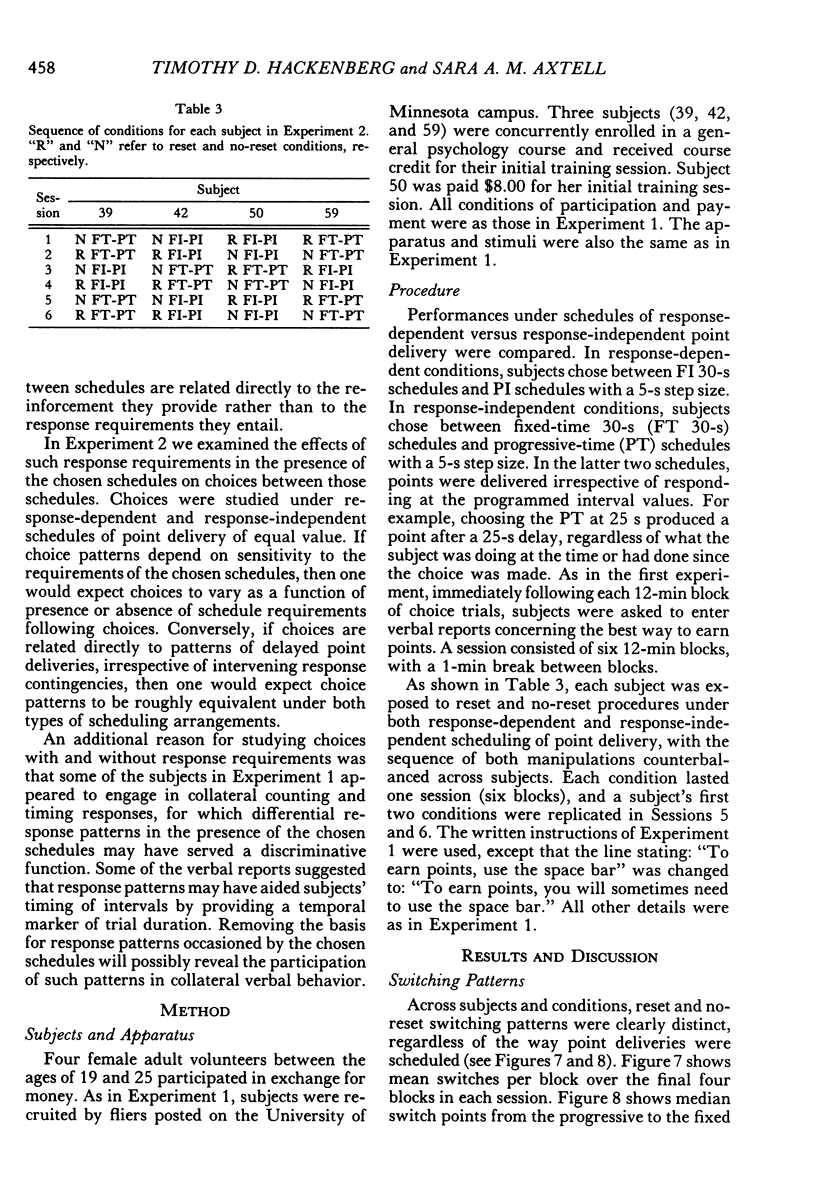
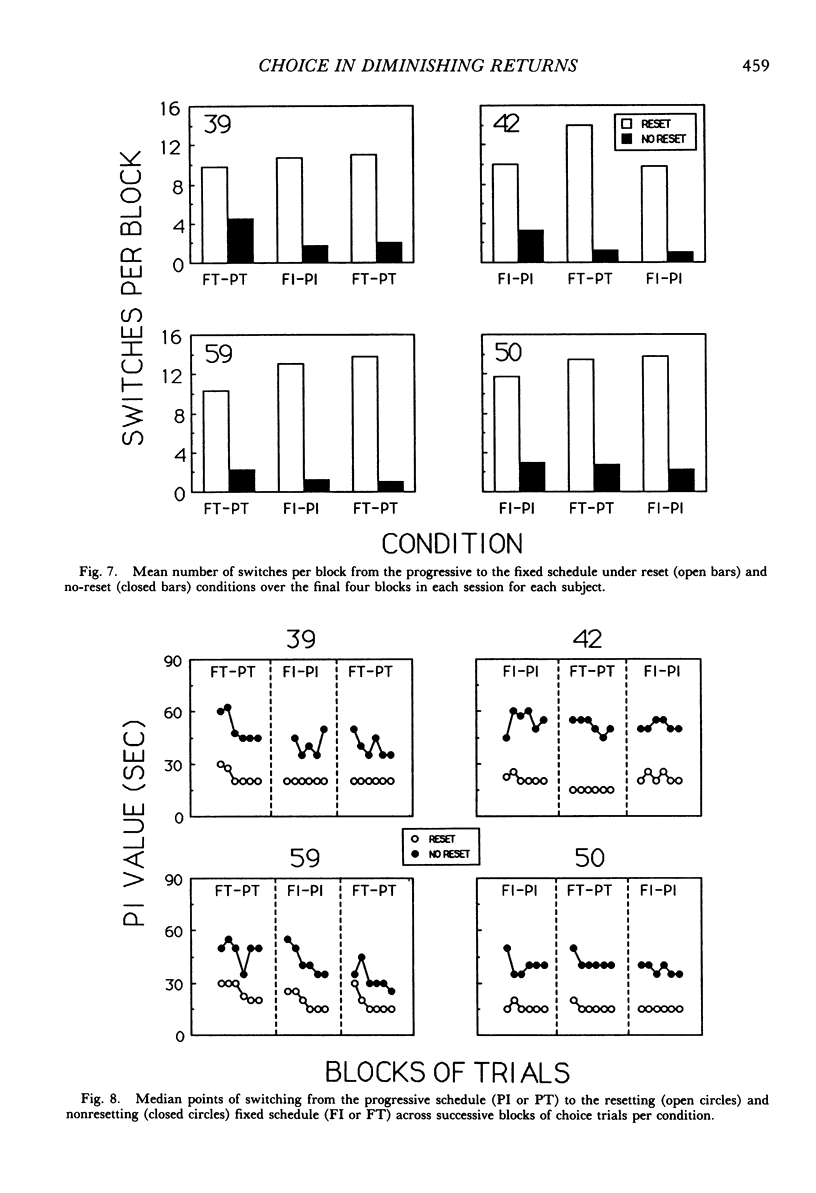
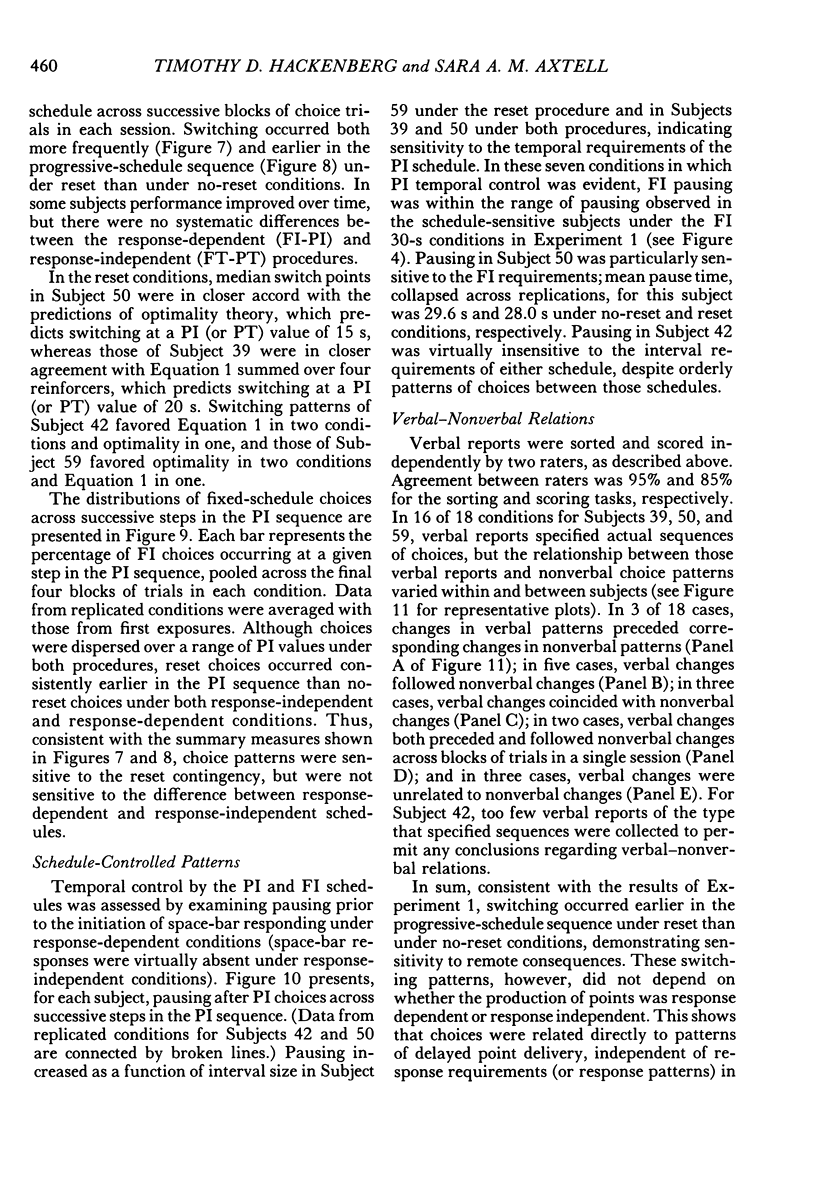
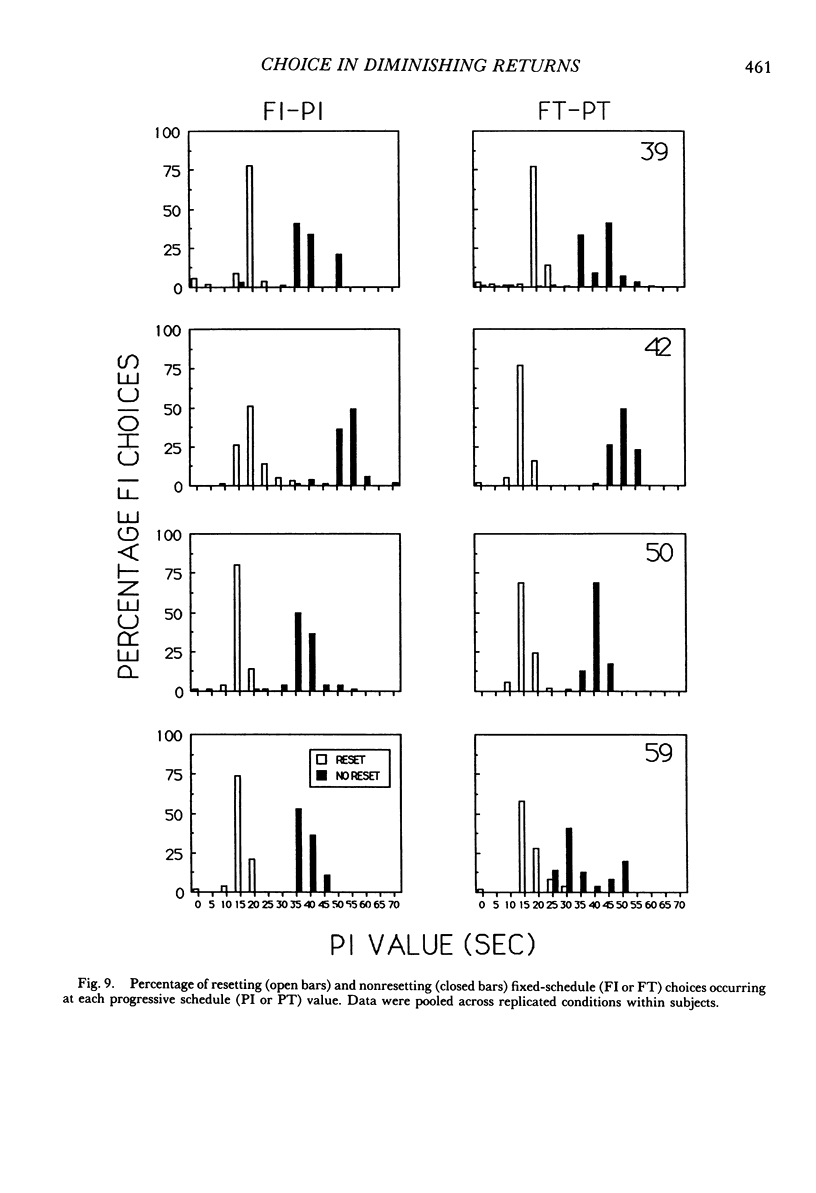
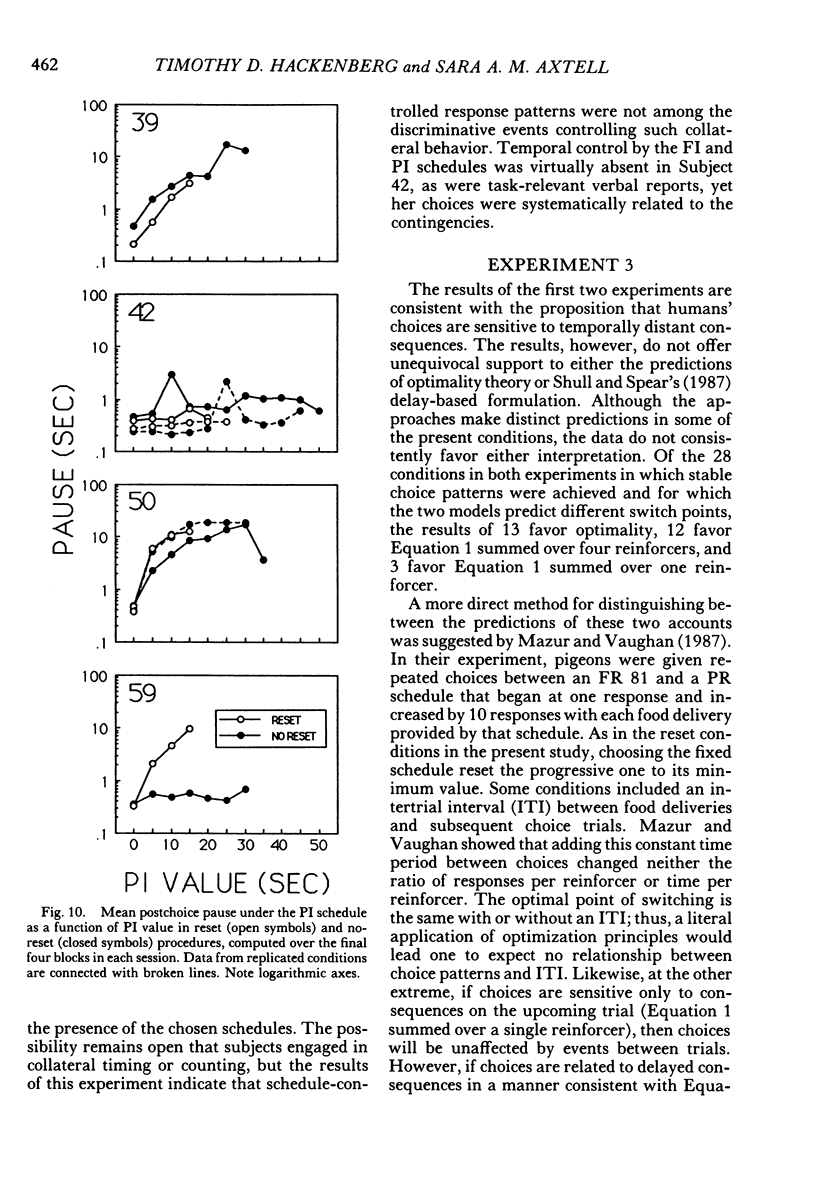
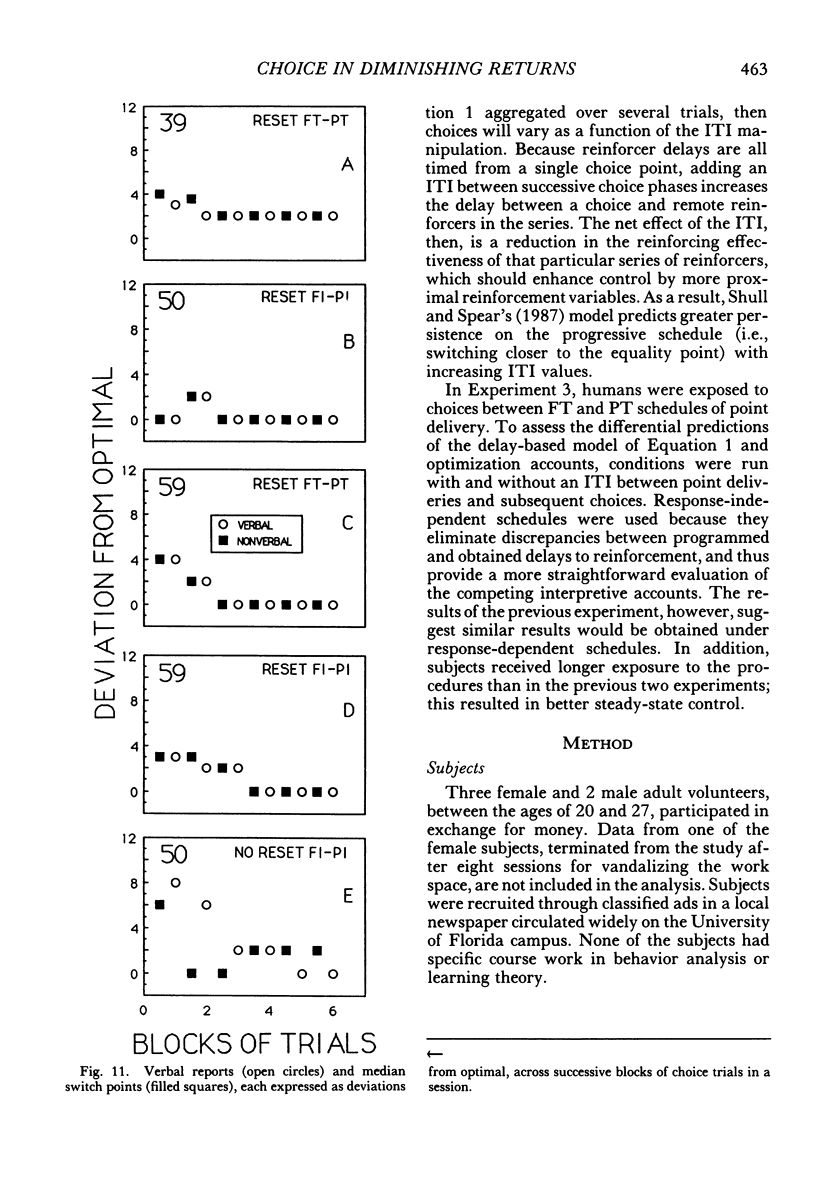
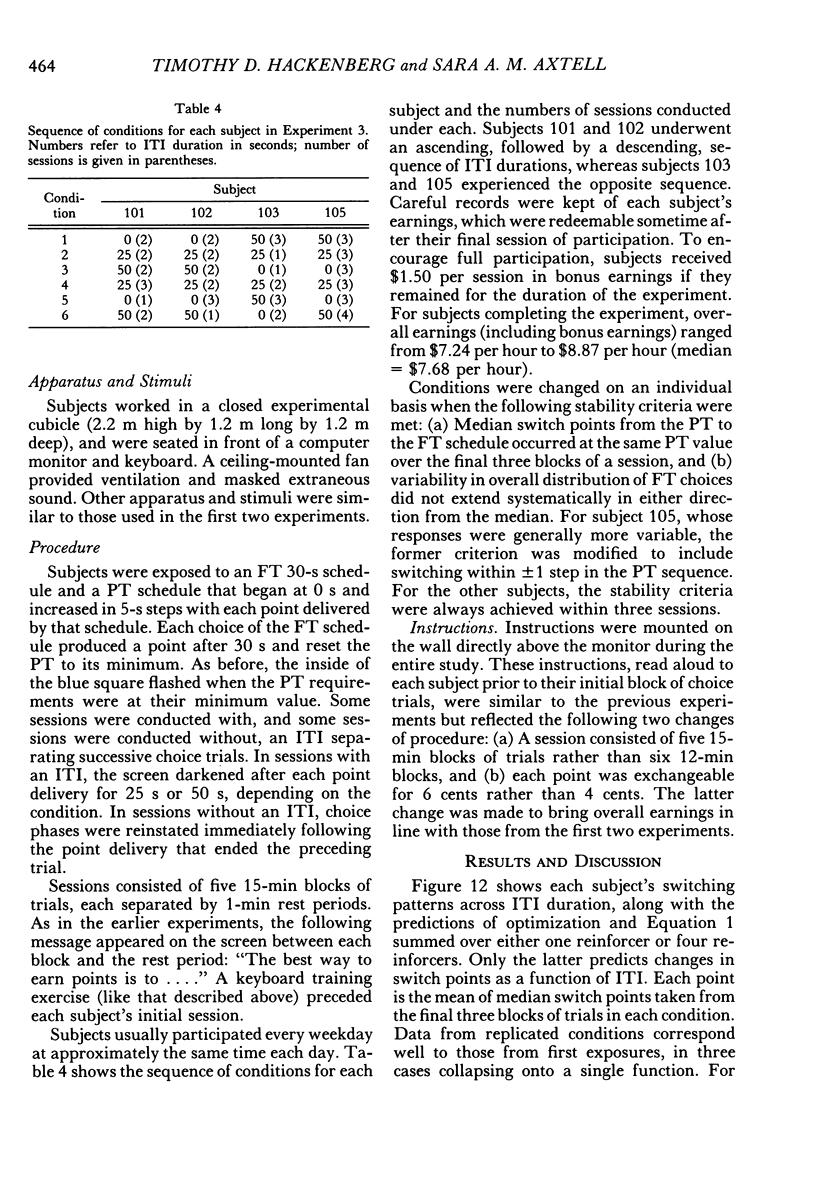
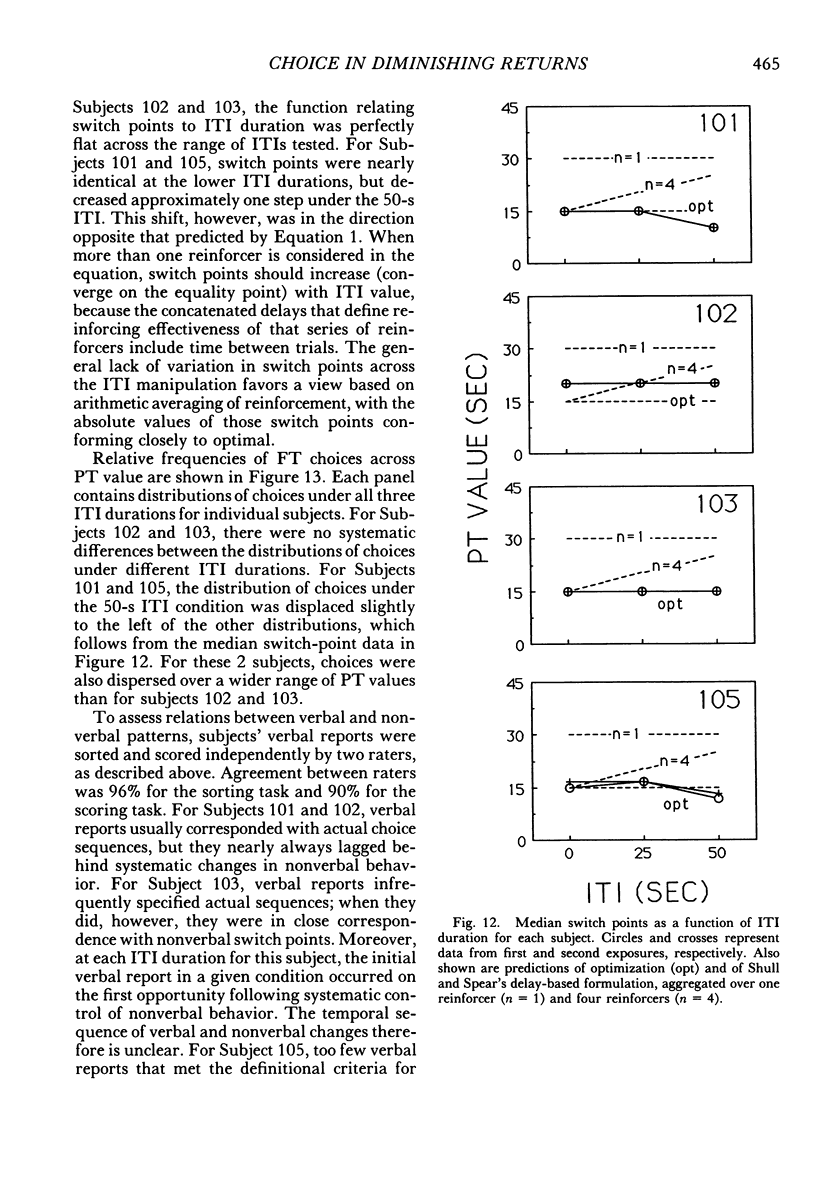
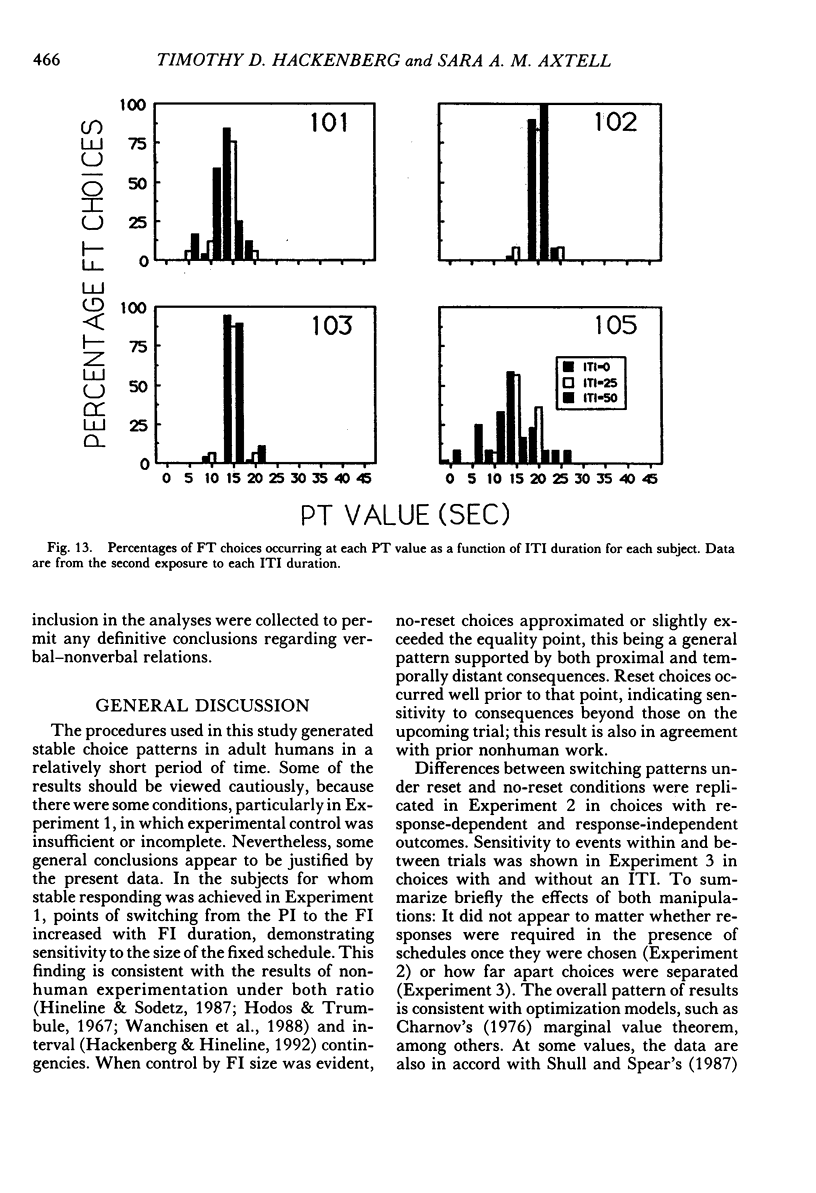
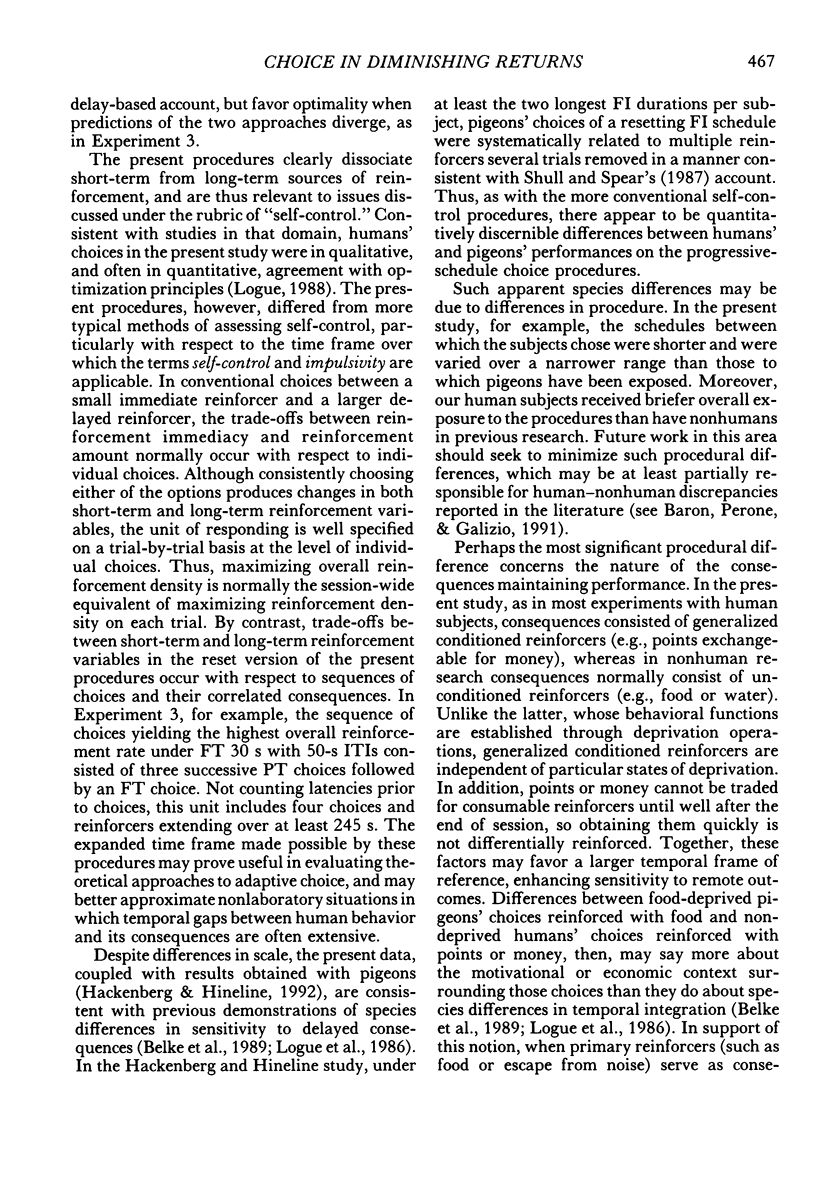
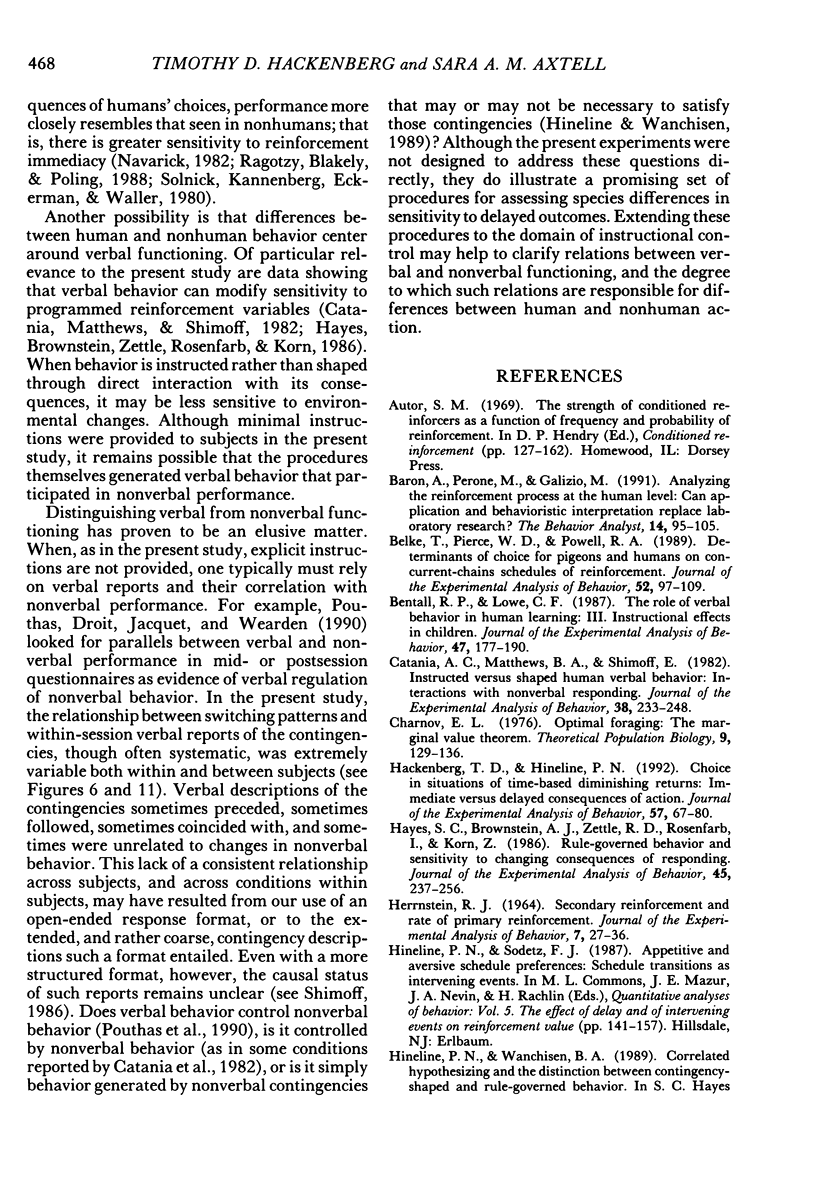
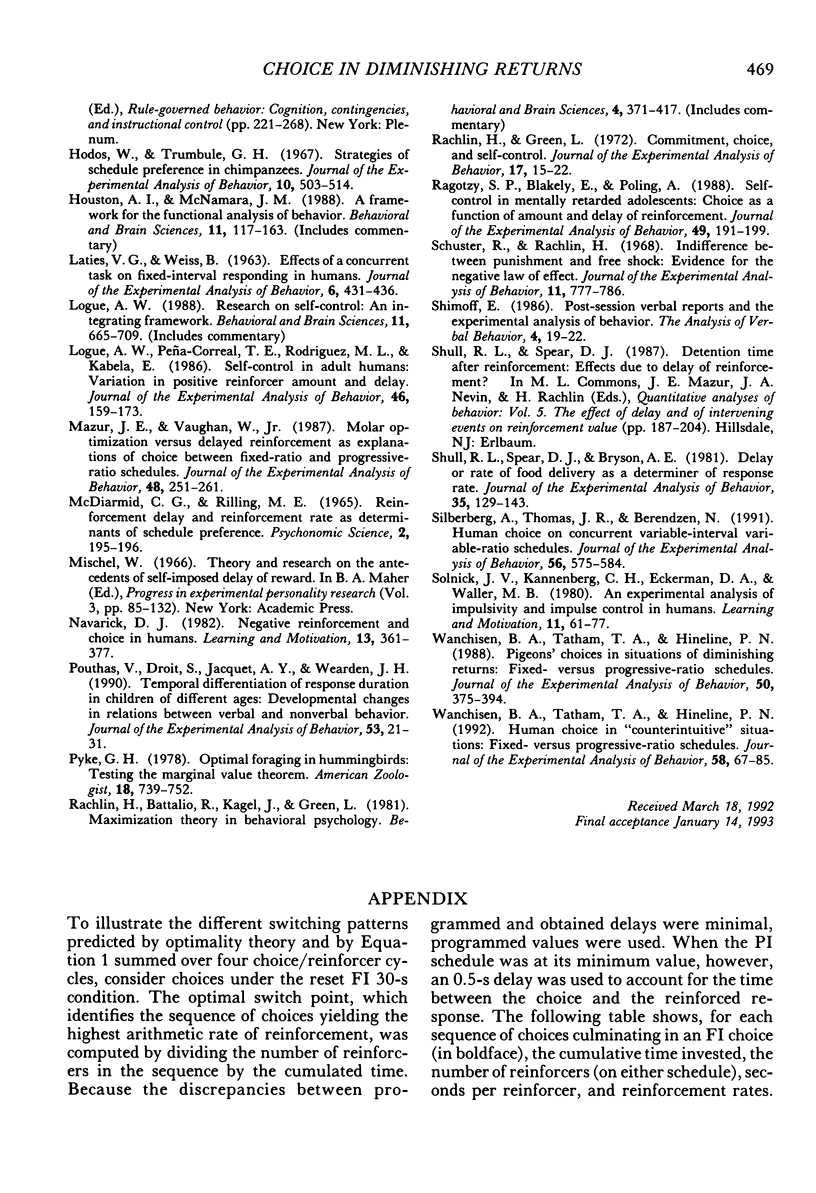
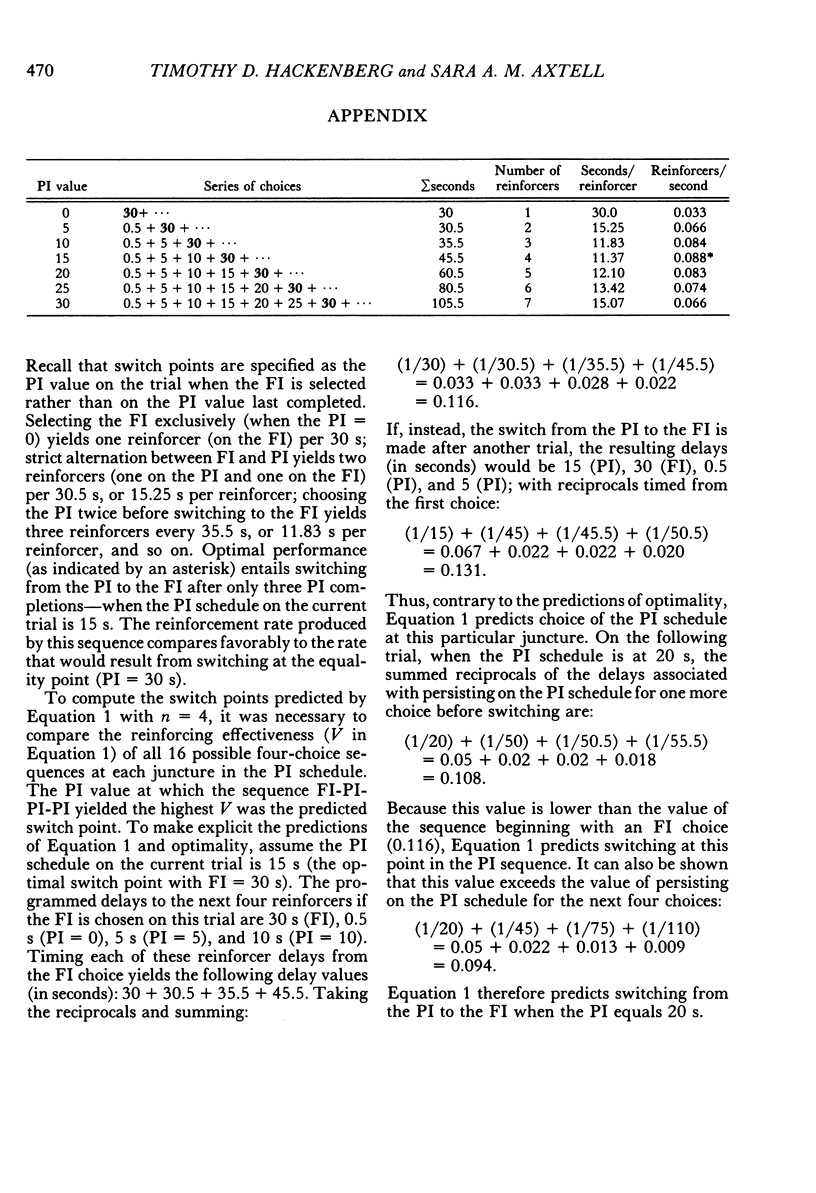
Selected References
These references are in PubMed. This may not be the complete list of references from this article.
- Belke T. W., Pierce W. D., Powell R. A. Determinants of choice for pigeons and humans on concurrent-chains schedules of reinforcement. J Exp Anal Behav. 1989 Sep;52(2):97–109. doi: 10.1901/jeab.1989.52-97. [DOI] [PMC free article] [PubMed] [Google Scholar]
- Bentall R. P., Lowe C. F. The role of verbal behavior in human learning: III. Instructional effects in children. J Exp Anal Behav. 1987 Mar;47(2):177–190. doi: 10.1901/jeab.1987.47-177. [DOI] [PMC free article] [PubMed] [Google Scholar]
- Catania A. C., Matthews B. A., Shimoff E. Instructed versus shaped human verbal behavior: Interactions with nonverbal responding. J Exp Anal Behav. 1982 Nov;38(3):233–248. doi: 10.1901/jeab.1982.38-233. [DOI] [PMC free article] [PubMed] [Google Scholar]
- Charnov E. L. Optimal foraging, the marginal value theorem. Theor Popul Biol. 1976 Apr;9(2):129–136. doi: 10.1016/0040-5809(76)90040-x. [DOI] [PubMed] [Google Scholar]
- HERRNSTEIN R. J. SECONDARY REINFORCEMENT AND RATE OF PRIMARY REINFORCEMENT. J Exp Anal Behav. 1964 Jan;7:27–36. doi: 10.1901/jeab.1964.7-27. [DOI] [PMC free article] [PubMed] [Google Scholar]
- Hackenberg T. D., Hineline P. N. Choice in situations of time-based diminishing returns: immediate versus delayed consequences of action. J Exp Anal Behav. 1992 Jan;57(1):67–80. doi: 10.1901/jeab.1992.57-67. [DOI] [PMC free article] [PubMed] [Google Scholar]
- Hayes S. C., Brownstein A. J., Zettle R. D., Rosenfarb I., Korn Z. Rule-governed behavior and sensitivity to changing consequences of responding. J Exp Anal Behav. 1986 May;45(3):237–256. doi: 10.1901/jeab.1986.45-237. [DOI] [PMC free article] [PubMed] [Google Scholar]
- Hodos W., Trumbule G. H. Strategies of schedule preference in chimpanzees. J Exp Anal Behav. 1967 Nov;10(6):503–514. doi: 10.1901/jeab.1967.10-503. [DOI] [PMC free article] [PubMed] [Google Scholar]
- Logue A. W., Peña-Correal T. E., Rodriguez M. L., Kabela E. Self-control in adult humans: variation in positive reinforcer amount and delay. J Exp Anal Behav. 1986 Sep;46(2):159–173. doi: 10.1901/jeab.1986.46-159. [DOI] [PMC free article] [PubMed] [Google Scholar]
- Mazur J. E., Vaughan W., Jr Molar optimization versus delayed reinforcement as explanations of choice between fixed-ratio and progressive-ratio schedules. J Exp Anal Behav. 1987 Sep;48(2):251–261. doi: 10.1901/jeab.1987.48-251. [DOI] [PMC free article] [PubMed] [Google Scholar]
- Mischel W. Theory and research on the antecedents of self-imposed delay of reward. Prog Exp Pers Res. 1966;3:85–132. [PubMed] [Google Scholar]
- Pouthas V., Droit S., Jacquet A. Y., Wearden J. H. Temporal differentiation of response duration in children of different ages: developmental changes in relations between verbal and nonverbal behavior. J Exp Anal Behav. 1990 Jan;53(1):21–31. doi: 10.1901/jeab.1990.53-21. [DOI] [PMC free article] [PubMed] [Google Scholar]
- Rachlin H., Green L. Commitment, choice and self-control. J Exp Anal Behav. 1972 Jan;17(1):15–22. doi: 10.1901/jeab.1972.17-15. [DOI] [PMC free article] [PubMed] [Google Scholar]
- Ragotzy S. P., Blakely E., Poling A. Self-control in mentally retarded adolescents: choice as a function of amount and delay of reinforcement. J Exp Anal Behav. 1988 Mar;49(2):191–199. doi: 10.1901/jeab.1988.49-191. [DOI] [PMC free article] [PubMed] [Google Scholar]
- Schuster R., Rachlin H. Indifference between punishment and free shock: evidence for the negative law of effect. J Exp Anal Behav. 1968 Nov;11(6):777–786. doi: 10.1901/jeab.1968.11-777. [DOI] [PMC free article] [PubMed] [Google Scholar]
- Shull R. L., Spear D. J., Bryson A. E. Delay or rate of food delivery as determiners of response rate. J Exp Anal Behav. 1981 Mar;35(2):129–143. doi: 10.1901/jeab.1981.35-129. [DOI] [PMC free article] [PubMed] [Google Scholar]
- Silberberg A., Thomas J. R., Berendzen N. Human choice on concurrent variable-interval variable-ratio schedules. J Exp Anal Behav. 1991 Nov;56(3):575–584. doi: 10.1901/jeab.1991.56-575. [DOI] [PMC free article] [PubMed] [Google Scholar]
- Wanchisen B. A., Tatham T. A., Hineline P. N. Human choice in "counterintuitive" situations: fixed- versus progressive-ratio schedules. J Exp Anal Behav. 1992 Jul;58(1):67–85. doi: 10.1901/jeab.1992.58-67. [DOI] [PMC free article] [PubMed] [Google Scholar]
- Wanchisen B. A., Tatham T. A., Hineline P. N. Pigeons' choices in situations of diminishing returns: fixed- versus progressive-ratio schedules. J Exp Anal Behav. 1988 Nov;50(3):375–394. doi: 10.1901/jeab.1988.50-375. [DOI] [PMC free article] [PubMed] [Google Scholar]


